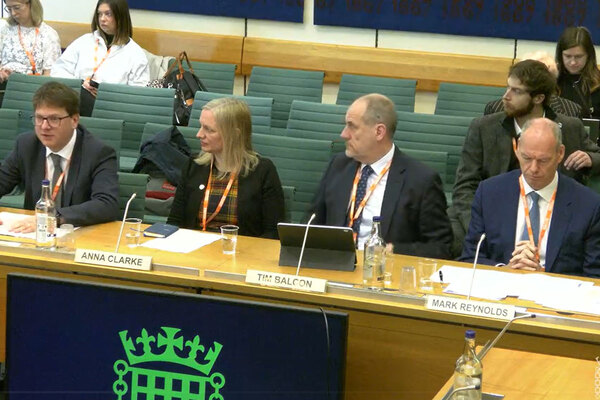
John Perry is a policy advisor at the Chartered Institute of Housing
Will housing receive a ‘red tape bonus’ from Brexit?
Leaving the European Union could reduce some regulation on social landlords, John Perry explains the possible changes and many areas of uncertainty
Leaving the EU is supposed to free us from red tape.
Depending whether Brexit is hard or soft, it could give Britain more freedom to set its own rules. Will this be of any benefit to the housing sector?
Let’s look at some of the possible changes.
EU procurement rules are one example.
Ending them could eventually create more freedom, but in the short term the public sector will still need to comply with the Public Contracts Regulations 2015.
Future trade agreements are also likely to come with new procurement rules, covering issues such as: openness, fairness, transparency and non-discrimination. So the changes might not be very great.
But if the UK did get more freedom, reforms might, for example, allow tenders to be restricted to British firms.
As the Chartered Institute of Housing already advises, contracts can and should anyway take into account the ‘social value’ that can be obtained – this shouldn’t change.
“But if the UK did get more freedom, reforms might for example allow tenders to be restricted to British firms.”
EU state aid rules will no longer apply.
These have affected the social housing sectors in Sweden, France and the Netherlands which have been forced into policy changes to avoid EU sanctions.
So far this hasn’t happened in the UK, and after Brexit it can’t happen. The government has said that state aid rules will continue in a similar form.
The UK could in future change how VAT applies. The housing sector has frequently asked for a new zero-VAT category for home insulation or repair work (new build is already zero rated).
Until now this has been ruled out, but after Brexit there might be more chance of a change – if, of course, the Treasury agrees to do it.
Potentially, EU employment regulations such as the working-time directive and rules about disability and discrimination could change but these would be controversial. In any case, protections against discrimination under the Human Rights Act will stay in place.
The UK will stop being a member of Eurostat which sets EU statistics rules, such as those that decide how ‘public bodies’ are defined for accounting purposes.
These have recently affected UK housing associations. But again, in practice, the UK Statistics Authority is likely to continue to comply with international rules.
What about the regulations that are still needed? There are 19,000 EU rules of different sorts with 34 agencies to implement them.
The government hasn’t yet decided overall objectives for regulation, the agencies it will use, the rules themselves, how far they will depart from EU rules and how they will be reviewed in the future.
The UK may stay inside some EU bodies in order to avoid creating new ones.
Housing is affected by regulations to do with the environment, climate change, health and safety, construction materials and more.
There’s starting to be more clarity about some of these areas but not others.
“Housing is affected by regulations to do with the environment, climate change, health and safety, construction materials and more.”
For example, material standards and energy consumption rules when building materials are planned to be covered by a common ‘rule book’ if the EU agrees this proposal. Less clear is how the UK’s compliance with the rule book will be monitored.
UK targets for reducing carbon emissions are written into UK law, but will they be revised if the EU decides to toughen its requirements eg to comply with the Paris Agreement?
Who will make sure that the UK meets its obligations? There is already a political argument about whether the environmental body that the government sets up will be advisory or will ‘have teeth’.
Another problem is that updating these detailed regulations often depends on complex research, much of it carried out by the EU.
How will this be done in future? This is crucial for building materials.
Only specialist agencies can do this work, and if it’s not done there could be serious consequences, as we know only too well from the Grenfell tragedy.
So the short answer to the question regarding less red tape is therefore: “Yes, possibly, but not as much as everyone may have hoped”. And it’s likely to be some time before we know for sure!
John Perry, policy advisor, Chartered Institute of Housing













